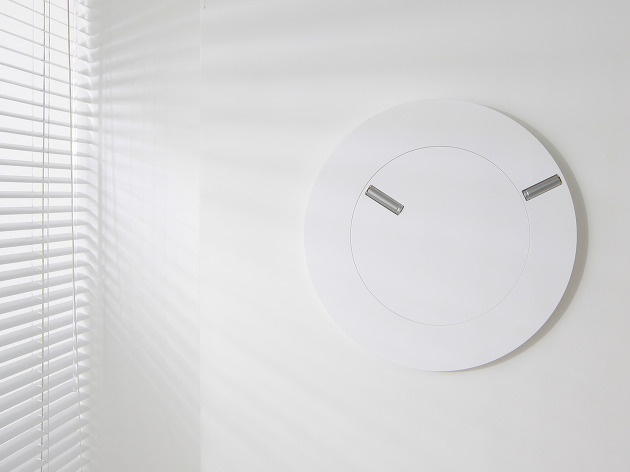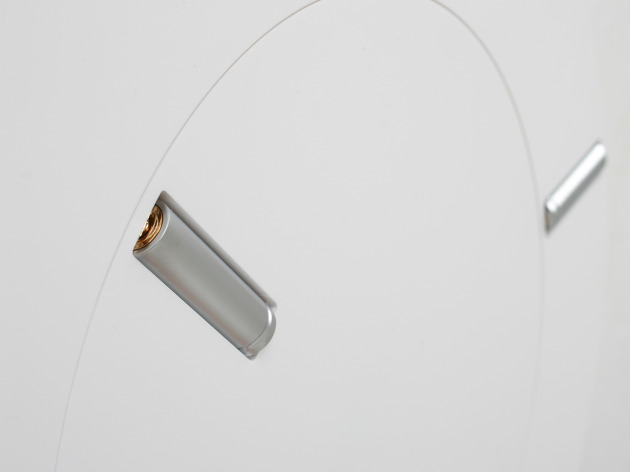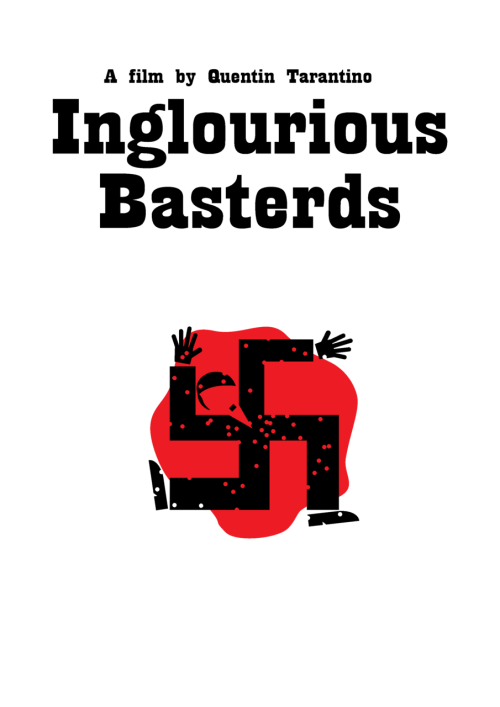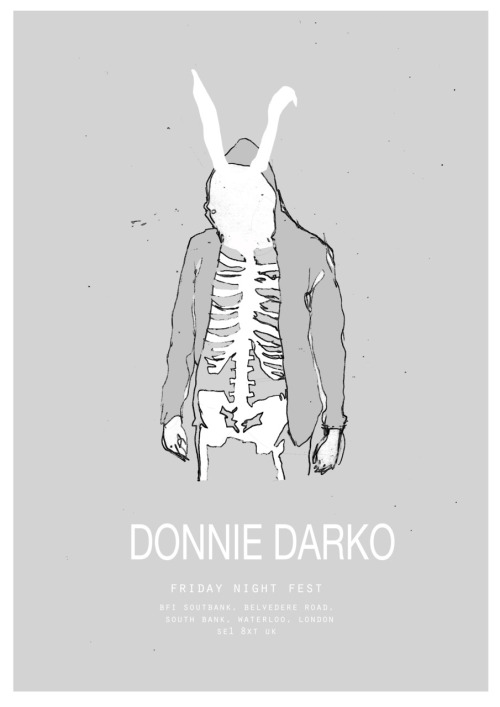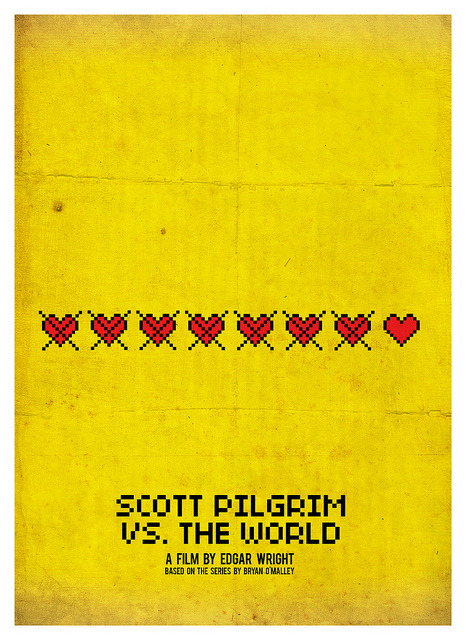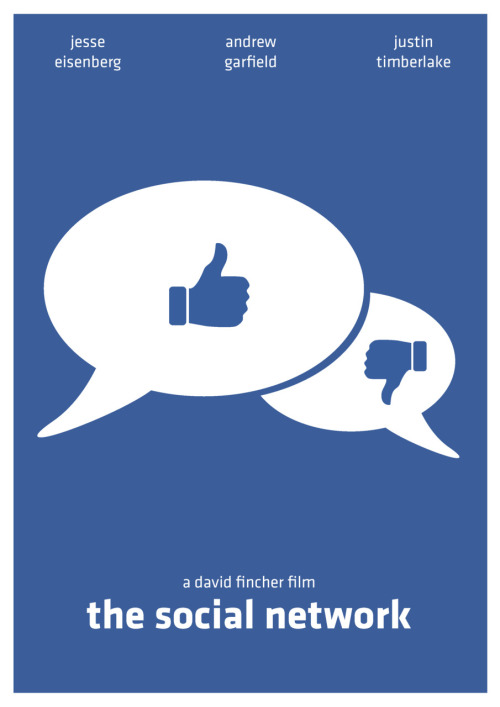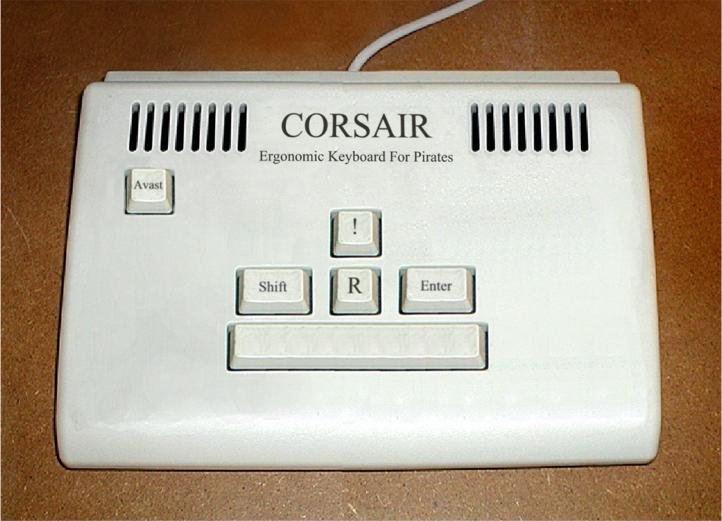Robyn and I watched Minimalism: A Documentary About Important Things on Netflix last night. And now I want to throw out all my stuff.
The doco follows the two guys behind The Minimalists, Joshua Fields Millburn & Ryan Nicodemus, on a speaking tour around the United States, interspersed with little interviews and vignettes with people who’ve adopted the minimalist philosophy including popular atheist philosopher/neuroscientist Sam Harris to Project 333 founder Courtney Carver, to a few Tiny House dwellers, to Colin Wright who lives his life from two bags while travelling the world, with plenty of other people thrown in the mix. It makes the compelling case that we need less stuff; that we should disengage from the modern default of pursuing happiness through consumption, because, in the words of Fight Club’s narrator; the things we own, end up owning us. It challenged me to think about my consumer habits as a Christian, and where they might reveal what I treasure, it gave me some fun ideas, but it also left me wanting more in terms of a solution to the problem it recognises in modern western life.
“We spend so much time on the hunt. But nothing ever quite does it for us. And we get so wrapped up in the hunt that it kind of makes us miserable.” — Minimalism: A Documentary About Important Things
It’s a bracing reminder of what our consumption does to us, to our brains, and to our world and of the perennial dissatisfaction that comes from life lived vicariously through our possessions.
“You have this thing that you were obsessed about, but then the new version comes out and now you no longer care about the one that you have. In fact, the one you have is a source of dissatisfaction.” — Sam Harris, in Minimalism: A Documentary About Important Things
The diagnosis of what is wrong with a consumption based approach to modern life is spot on. My favourite quote of all in the documentary, from a speech by former U.S President Jimmy Carter titled Crisis of Confidence, explains a little of my uneasy relationship with Minimalism (even as I plot a widescale decluttering of my life, and a continued changing of my consumption habits).
In a nation that was proud of hard work, strong families, close-knit communities, and our faith in God, too many of us now tend to worship self-indulgence and consumption. Human identity is no longer defined by what one does, but by what one owns. But we’ve discovered that owning things and consuming things does not satisfy our longing for meaning. We’ve learned that piling up material goods cannot fill the emptiness of lives which have no confidence or purpose.
Carter’s diagnosis — which Minimalism endorses — is on the money. Modern consumerism isn’t just a behaviour; it’s about our identity. It’s about worship. From the Bible’s insight into our humanity it’s about how we feel the void left by our departure from God. It’s idolatry.
I thought Minimalism was spot on both in its diagnosis of what’s happening in our hearts, and thus in our culture, and of the damage our consumption does to us, the planet, and to others. Sadly, I’m not totally sold on the solution they (and those the people they featured) offer. Their solution was about a change in identity, a change in lifestyle, a change in consumption, and ultimately a change in worship. And while the gods they chose to replace ‘stuff with’ might make them better people to know and love, and give them more satisfaction, they’re still ‘idols’… it’s still ‘stuff’ just less of it, or less tangible stuff in the form of relationships and experience. The solutions offered in Minimalism still involved essentially defined by ‘stuff’ — sometimes just by its absence (whether in a tiny house or via meditation/stillness). The various minimalists spoke of pursuing something like asceticism, or simply a more self-controlled (no less self-indulgent) approach to consumption. I felt like most of the ways the minimalist alternative to maximalist-consumption driven living were built on an approach to life that is still built around being a consumer; but consuming more carefully by pursuing things of value. There’s a sense to that the idea that we should focus our ‘ownership’ on things that we love, that do give us pleasure, that this is actually just consumption with a modified philosophical aesthetic. I look at the sparsely furnished rooms and carefully curated piles of possessions and think ‘there’s beauty there’ and wonder how I can work my way towards achieving that particular way of life.
“There’s nothing wrong with consumption, the problem is compulsory consumption. We’re tired of it. We’re tired of acquiring things because that’s what we’re told we’re supposed to do” — Minimalism: A Documentary About Important Things
This approach reminded me of a bit in C.S Lewis’s The Screwtape Letters where the character, Screwtape, writes on gluttony — and our possession based, greed-driven, over-indulgence is very much like gluttony. Screwtape wants his apprentice Wormwood to know that the most pernicious type of gluttony actually comes with the appearance of self-denial; because it’s actually ‘self-interest’ that makes gluttony or consumption so harmful (Carter was right!). My concern is that the solutions offered in Minimalism (though perhaps not the ones modelled by the Minimalists on their journey of self-giving, and by some of the other people interviewed who’ve simplified in order to maximise generosity) fall into the trap of replacing one excess with another kind of gluttony… And there’s a danger in my own heart, and my own desire to correct my excess, that I’ll go the same way.
“My dear Wormwood,
The contemptuous way in which you spoke of gluttony as a means of catching souls, in your last letter, only shows your ignorance. One of the great achievements of the last hundred years has been to deaden the human conscience on that subject, so that by now you will hardly find a sermon preached or a conscience troubled by it in the whole length and breadth of Europe. This has largely been effected by concentrating all our efforts on gluttony of Delicacy, not gluttony of Excess. Your patient’s mother, as I learn from the dossier and you might have learned from Glubose, is a good example. She would be astonished—one day, I hope, will be—to learn that her whole life is enslaved to this kind of sensuality, which is quite concealed from her by the fact that the quantities involved are small. But what do quantities matter, provided we can use a human belly and palate to produce querulousness, impatience, uncharitableness and self-concern? Glubose has this old woman well in hand. She is a positive terror to hostesses and servants. She is always turning from what has been offered her to say with a demure little sigh and a smile ‘Oh please, please … all I want is a cup of tea, weak but not too weak, and the teeniest weeniest bit of really crisp toast’. You see? Because what she wants is smaller and less costly than what has been set before her, she never recognises as gluttony her determination to get what she wants, however troublesome it may be to others. At the very moment of indulging her appetite she believes that she is practising temperance. In a crowded restaurant she gives a little scream at the plate which some overworked waitress has set before her and says, ‘Oh, that’s far, far too much! Take it away and bring me about a quarter of it’. If challenged, she would say she was doing this to avoid waste; in reality she does it because the particular shade of delicacy to which we have enslaved her is offended by the sight of more food than she happens to want.”
If you want a really radical antidote to consumerism — one that might help you avoid both gluttony of excess, and gluttony of delicacy, one that might do something more to kill consumerism in your life and replace it with an alternative, one that might bring a truly meaningful solution in community not just individuals… the answer might not be to listen to a bunch of millionaire businessmen and people who tasted worldly success telling you about their conversion to a newer, simpler way of life. The answer might be to listen to a bloke who swore of this way of life from the beginning because, well, he was perfect. Jesus has some pretty profound things to say about humanity, consumption, and the pursuit of meaning.
He says life as humans is ultimately about the pursuit of treasure. This is because somewhere in our DNA, we pursue meaning through worship.
Jesus said ‘where your treasure is, there your heart is also’ he said this having said ‘store up for yourself treasures in heaven’…
We are, by nature, worshippers who look for identity in what we treasure. The Bible’s answer to this is not to find the right thing to treasure, but to treasure Jesus… to pursue treasures in heaven. And this provides us with some guidelines not just for approaching the good stuff in this world with moderation (without worshipping it), but for understanding that the best way to approach consumables isn’t fundamentally about self-interest, self-indulgence, or self-control (though it will produce this), it’s about the other. Jesus models the pursuit of treasure in heaven when he lays down his life for the sake of others. He comes back to this theme of ‘treasure’; or consumption, and our desire to find meaning in controlling and possessing as much as possible, in a slightly indirect way when he challenges us to be givers not consumers; sacrificers, not killers. To follow Jesus is to adopt a life not of self-denial, but self-giving from a place of knowing God gives us everything.
“Whoever wants to be my disciple must deny themselves and take up their cross and follow me. For whoever wants to save their life will lose it, but whoever loses their life for me will find it. What good will it be for someone to gain the whole world, yet forfeit their soul? Or what can anyone give in exchange for their soul? For the Son of Man is going to come in his Father’s glory with his angels, and then he will reward each person according to what they have done. — Matthew 16:24-27
This does involve a radical approach to our stuff; you might remember the story where a rich young bloke comes up to Jesus to ask how to be part of God’s kingdom — how to have treasure in heaven, and Jesus tells him to give away everything to the the poor, and to come and follow him. This approach to stuff is what taking up your cross ultimately looks like — and it’s a death to self that I’m still working on in my own life. The bloke can’t do it, and Jesus says those famous words:
“If you want to be perfect, go, sell your possessions and give to the poor, and you will have treasure in heaven. Then come, follow me.”
When the young man heard this, he went away sad, because he had great wealth.
Then Jesus said to his disciples, “Truly I tell you, it is hard for someone who is rich to enter the kingdom of heaven…”
Now. Giving away everything doesn’t actually get you into heaven; there is grace even for my inability to totally kill my idolatry of my stuff and my comfort. Part of the point of the stories about Jesus in Matthew’s Gospel up until the crucifixion are to show that Jesus is the only truly faithful law-fulfiller. The Sermon On The Mount is first about him, and its an exploration of what it looks like to fulfil the humanly impossible Old Testament command to “be holy because I (God) am holy”… When the disciples are blown away by how big this command sounds and ask “who can be saved” if this is required, Jesus says:
“With man this is impossible, but with God all things are possible.”
What he calls the rich man to do is what he did when confronted with temptation, and what he did in his whole earthly life, up to and including the Cross. And that’s what makes following him the way; this means both following his example (discipling ourselves to become like him, or ‘worshipping him’) and relying on him as the one who actually achieves the righteousness God commands.
Following Jesus means changing who we worship — where we look to for identity and satisfaction — it means shifting our eyes from the things of this world to the one seated ‘in his Father’s glory’ — and having that change the way we live. It means ditching our old habits and consumption, and switching it for something else; not just mastering our vices but taking up virtues. Idols don’t just get killed they get replaced. Minimalism offers a compelling picture of a replacement for the idol of worldly physical treasures, only it replaces them with other worldly things; one guy they interview says his whole approach to life is built on the idea that this is all there is, and our time is all we have. When Paul reflects on what it means to become a ‘new self’ with new worship in Colossians 3, he does something interesting that parallels Jesus’ call to pursue treasure in heaven by talking quite concretely about how we live here on earth. He starts by connecting us to Jesus promise that the “Son of Man” would come into his father’s glory:
“Since, then, you have been raised with Christ, set your hearts on things above, where Christ is, seated at the right hand of God. Set your minds on things above, not on earthly things.”
And he uses this to call us to put to death the idolatrous parts of our ‘earthly nature’ — our default patterns of looking for meaning through consumption and stuff… to ‘put on the new self’ which is being ‘renewed in the knowledge of the image of its creator’ (and from Colossians 1:15, that’s Jesus, this is about being a disciple, it’s about taking up our cross). Then he gives us this new pattern of living; one not built simply on being more appropriately ‘self-indulgent’ but rather built on putting others first.
Therefore, as God’s chosen people, holy and dearly loved, clothe yourselves with compassion, kindness, humility, gentleness and patience. Bear with each other and forgive one another if any of you has a grievance against someone. Forgive as the Lord forgave you. And over all these virtues put on love, which binds them all together in perfect unity.
Looking for meaning in consumption — the hunt for identity in buying or not buying things — is a vice. It’s destructive; not just for hoarders, but for minimalists as well. If we believe we’re living a good life simply because we’ve adopted simplicity we’re still missing the heart of true worship. The opposite of greed — or the virtue that combats the vice — is not frugality (or minimalism), but generosity. Just as the opposite of gluttony is not abstinence, but hospitality. Generosity and hospitality require a particular approach to stuff that means not finding meaning in it, and not holding on to it — and there’s plenty of great stuff in the habits and philosophies put forward by the people featured in Minimalism that’ll help me (and maybe you) embrace a more generous and hospitable way of life; so long as my approach to stuff is profoundly ‘other-centred’ because my treasures are in heaven. That’s where love kicks in. Which is interesting, because the closing words of Minimalism which is something of a slogan for the Minimalists:
“Love people, use things. The opposite never works.”















